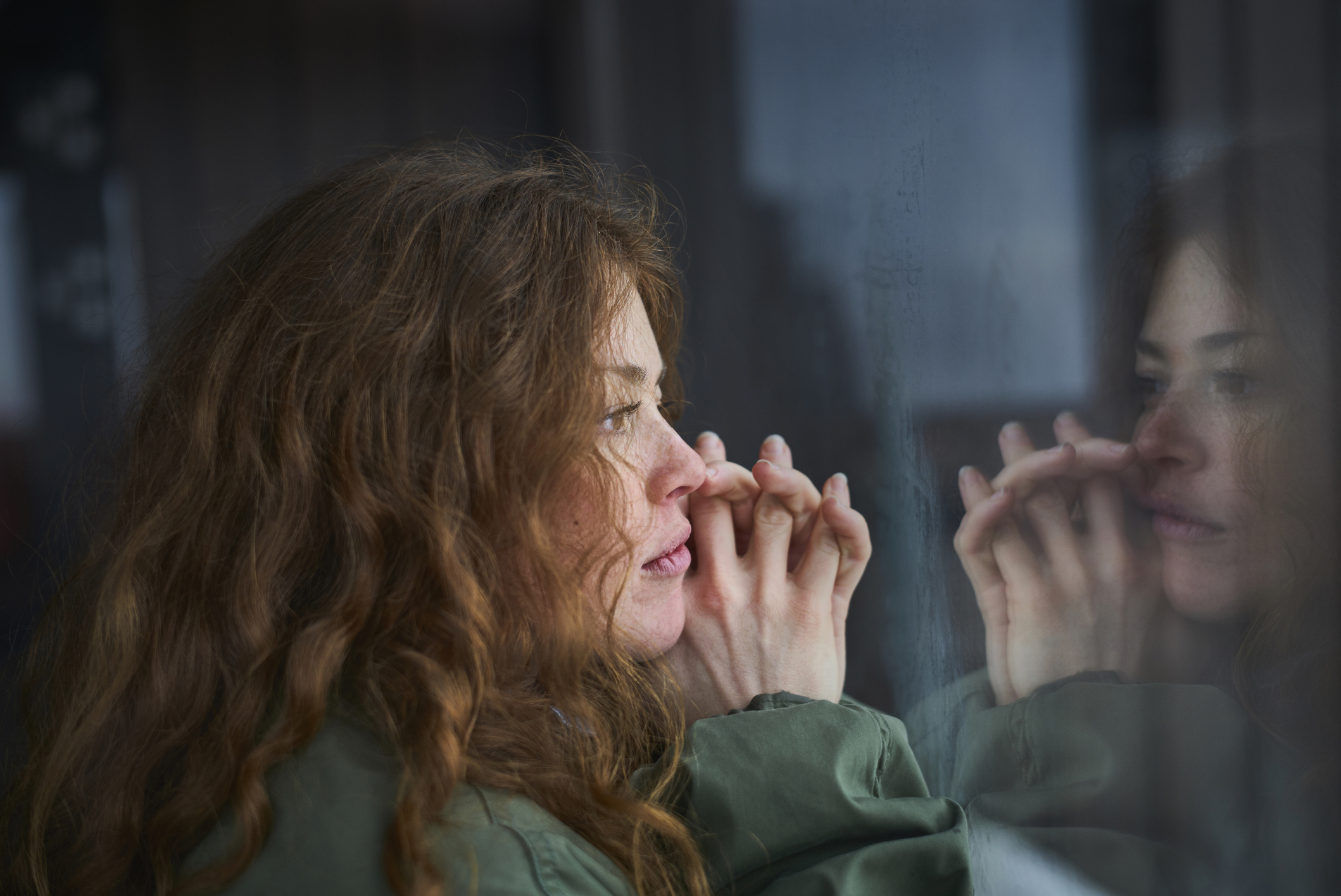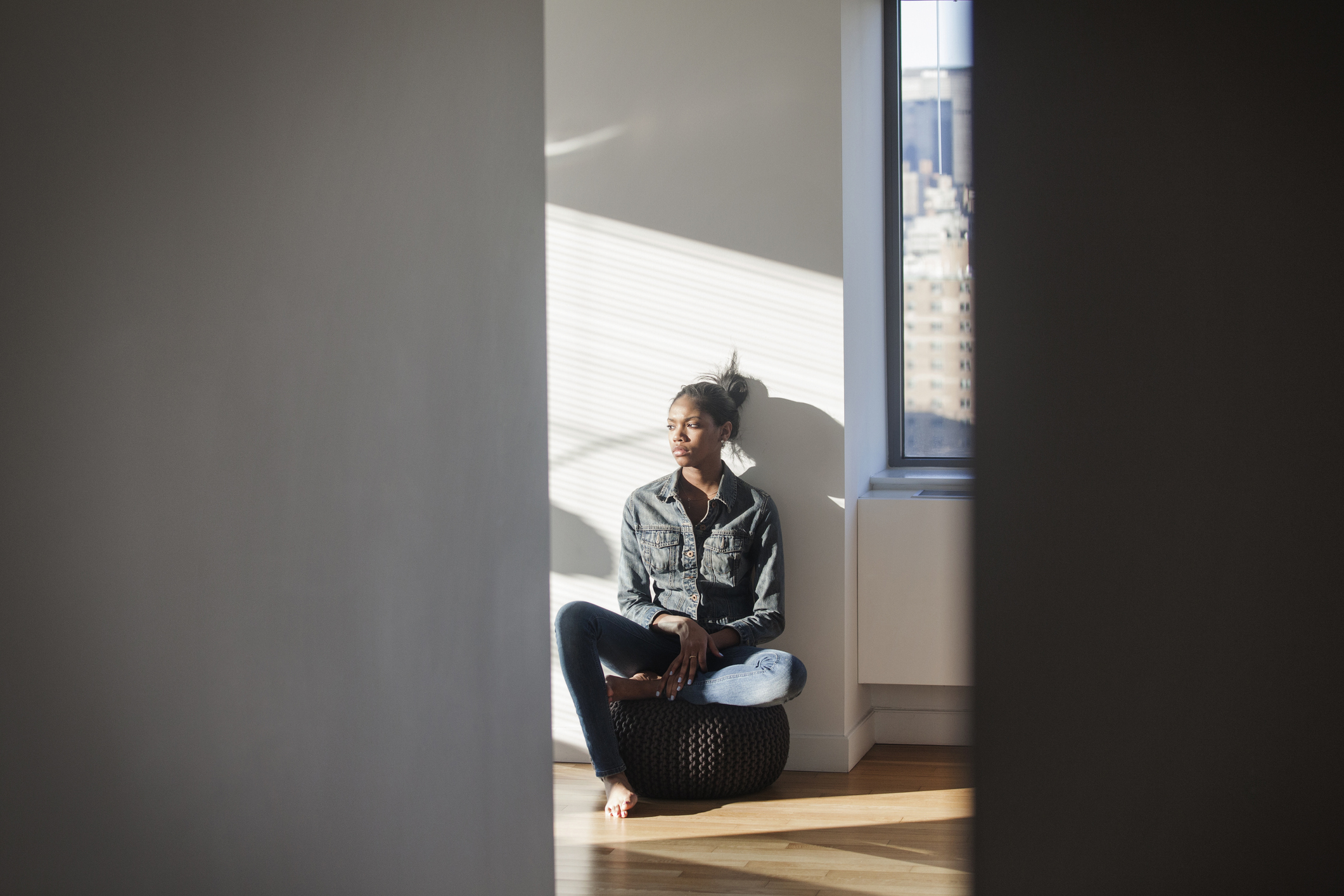
It's the largest study of its kind so far, observing 236,379 survivors.
New research has found that one in three people who suffered more severely from COVID-19 then develop a mental health problem following their recovery.
The study, conducted by the University of Oxford, found that in the six months after a diagnosis, around a third are at a 'robust' increased risk of developing some form of serious neurological or psychiatric condition.
These include mental health conditions such as depression, anxiety, and more.
Published in The Lancet Psychiatry journal, it's the largest study of its kind so far. In total, researchers observed 236,379 COVID-19 survivors.
Of those observed, 34% of participants were diagnosed with a mental health issue in the six months following their infection.

Researchers also concluded that the more severe the COVID case, the more likely the patient was to end up with some form of mental health diagnosis.
Celebrity news, beauty, fashion advice, and fascinating features, delivered straight to your inbox!
Whether the COVID infection, or the current climate as a result of the pandemic, caused the mental health conditions is unknown. Researchers said that many of the conditions may have been triggered by the sheer stress of the last year, rather than having a physiological link to the virus.
What will this mean for society and the NHS? Well, according to the study authors, ‘substantial effects on health and social care systems are likely to occur’. They also stress the importance of ‘urgent’ research.
"These are real-world data from a large number of patients," said Paul Harrison, the main author of the study.
"They confirm the high rates of psychiatric diagnoses after Covid-19, and show that serious disorders affecting the nervous system (such as stroke and dementia) occur too. While the latter are much rarer, they are significant, especially in those who had severe Covid-19," he shares.
"Although the individual risks for most disorders are small, the effect across the whole population may be substantial for health and social care systems due to the scale of the pandemic and that many of these conditions are chronic. As a result, health care systems need to be resourced to deal with the anticipated need, both within primary and secondary care services," he concludes.
The researchers looked at the prevalence of fourteen separate mental health conditions in the survivors of more severe COVID-19 cases. Only participants over the age of ten were observed.
The results? Anxiety disorders affected 17% of patients, mood disorders impacted 14%, substance misuse disorders affected 7% and insomnia affected 5%.
If you are at all concerned about your own COVID-19 recovery or your own mental health, do book an appointment with your local GP.

Ally is Marie Claire UK's Senior Health and Sustainability Editor, a well-regarded wellness expert, ten-time marathoner, and Boston Qualifying runner.
Utilising her impressive skillset and exceptional quality of writing, she pens investigative, review and first-person pieces that consistently demonstrate flair and originality.
As well as writing, Ally manages a team of freelancers, oversees all commissioning and strategy for her pillars, and spearheads the brand's annual Women in Sport covers, interviewing and shooting the likes of Mary Earps, Millie Bright, and Ilona Maher. Shortlisted for three BSMEs and winning one in 2022, Ally lives and breathes her verticals: her eye for a story and connections within the wellness sphere are unrivalled. Follow Ally on Instagram for more.
